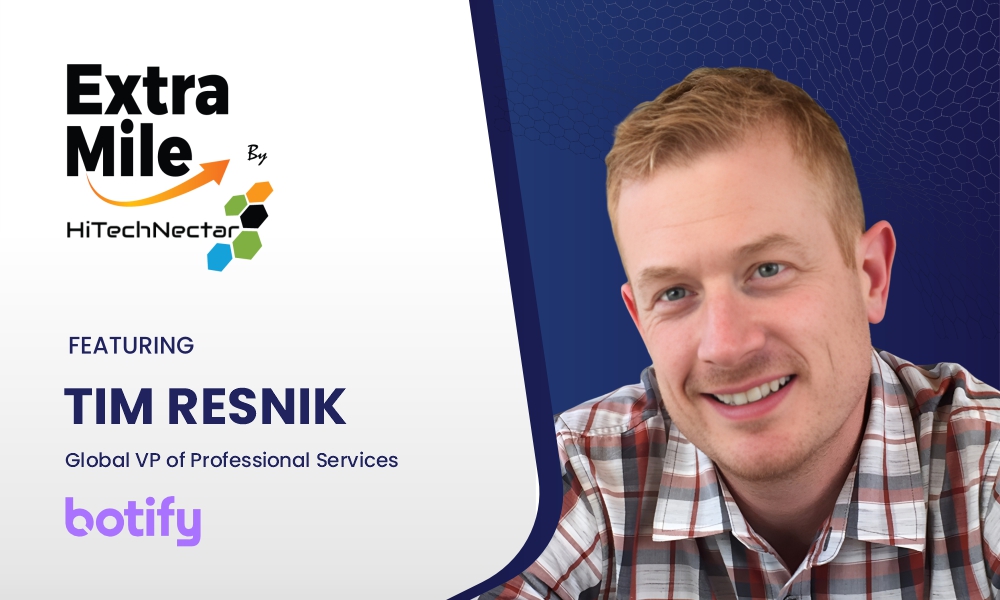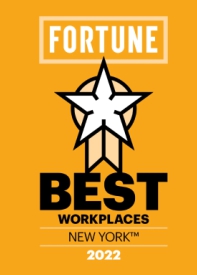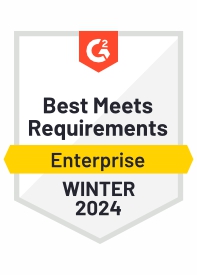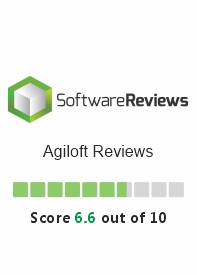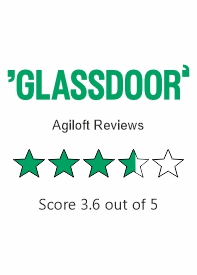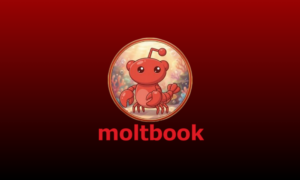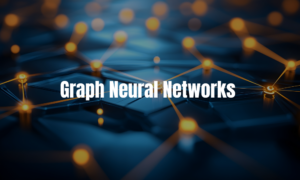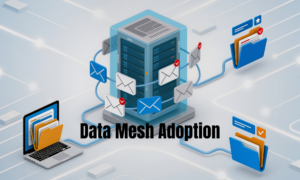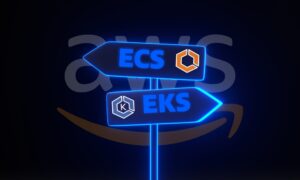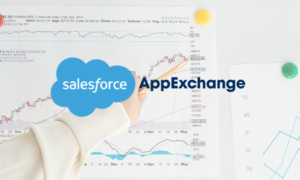Host: Hello, and welcome everyone to another informative session of ExtraMile by HiTechNectar, where we feature industry leaders and frontrunners who are defining the future of tech and business.
I’m your host, Rittika, and for today’s discussion, I would like to introduce our guest, Tim Resnik, the Global VP of Professional Services at Botify, Search Optimization with AI Capabilities. Tim, as an SEO expert, leads Botify’s global services portfolio integrating client feedback directly into the product roadmap.
Let’s explore the world of SEO, AI, AI-powered search, and understand how Botify is winning the race.
Welcome Tim, it’s a pleasure to have you with us today.
Tim: Thank you so much and thank you for having me.
Host: So, you have spent over two decades as an expert in product management, SEO, SaaS and e-commerce. How have diverse roles in different organizations shaped your professional life so far?
Tim: Yeah, I’ve had quite a few diverse roles. I’ve really gone back and forth between the very small and the very big. And so, I’ve worked for a lot of startups.
I’ve started my own company and sold my own company as well. And I’ve worked for the largest company in the world, which is Walmart. And I think, you know, some of the things that I learned and that has shaped my professional life is that you can be an entrepreneur in any of those situations.
You know, even at the biggest company in the world or at Wayfair, where I was as well, like you can still build zero to one. You just have to make sure that you have your work, the remit and the space to do so. And you can be very entrepreneurial and something that I’ve tried to be consistent with throughout my career.
Host: It’s pretty amazing how your past experiences have shaped your professional life. So, moving ahead, what are the key responsibilities at Botify? Do you play as the company’s global VP of professional services? And how do you lead a global team while looking after professional services within the firm?
Tim: Yeah, so I like to look at our professional services team as the last mile between the product and the customer. And for those of you who have done a lot of that in different situations, we used to say at Walmart, for example, there’s SEO, and then there’s SEO at Walmart. And I don’t think that’s unique to Walmart.
I think that is unique to a lot of different firms, whether you work for an agency and you work with small companies or big companies alike, each situation is extremely unique. So, when you’re selling enterprise SaaS SEO software, you can’t just hand it off to the customer and expect that they’re going to be able to solve all their problems. You have to bridge that gap.
So, we like to think of ourselves as the human interface between the product and the customer to make sure they’re getting the most value out of our software.
Host: That’s quite a unique approach, I must say. So, approaching further, Botify’s agentic AI search technology is truly making a mark in visibility. So, what strategies does the firm undertake to maximize online visibility across traditional and generative search engines?
Tim: Yeah. So, we’ve been in business since 2011, one of the first large enterprise level crawlers for SEO. In fact, I was a customer. I hired Botify when I was at Walmart.
So, I got to know Botify very well from a customer perspective and some of the things that Botify is truly great at. And Botify is truly great at scale, for one thing. And Botify is truly great at bringing data from many disparate sources into a single unified platform.
And so, for traditional search, that’s been fantastic because you can look at things like your Google Search Console data. You can look at Google Analytics. You can look at this really vast crawl information, Walmart, and combine it with all this data.
Now, if you start thinking about the generative search, it becomes even more interesting because you can start layering additional information on top of this. One is large file information. And so, what’s actually happening at the server level?
What bots are coming in and where are they going? And from that, we can kind of figure out what’s going on these different LLM surfaces and make decisions and make decisions about how we want to market to these surfaces.
Host: Yeah, it’s absolutely amazing. And as you have come a long way and Botify’s advanced strategies are helping brands to stay updated in this regard. So ranking parameters of leading search engines are also changing.
What is your take on the evolving ranking guidelines? And do you think these are important for authentic and valuable content?
Tim: Yeah, I mean, I think they are changing and they aren’t changing at the same time. I think the process for how Google… Let’s just talk Google for now because they are the 800-pound gorilla.
So how Google is taking in the information and understanding intent has changed quite a bit, right? With the advent of LLMs and natural language processing, which they’ve been doing for quite some time, even before ChatGPT and the LLMs with their BERT technology. But understanding that intent and then being able to kind of go through this whole pipeline and then match it with the appropriate content.
Their index and their ranking algorithms are quite similar to how they’ve been historically. Output is changing though because it’s so conversational now. It’s not just you’re inputting a search and getting a response, you’re having a conversation.
And Google is re-ranking things in that conversation to try to figure out what is the most relevant to be able to match the intent. And so, it’s not just about those ranking algorithms of the past, but it’s also about these new re-ranking algorithms and the new way that Google and these other LLMs are engaging with the customer on the front end.
Host: Yeah. So, the content ranking algorithms are changing and it should follow the basic aim to inform the audience rather than spamming people.
Tim: Absolutely. Always.
Host: What are the core principles to incorporate while optimizing content and web pages for AI bots and generative search engines?
Tim: Yeah. I mean, I think you hit on it before. You definitely don’t want to spam.
You want to write for context, right? Not clicks. So, in traditional search, I think what a lot of content producers and e-commerce sites have gotten used to is optimizing title tags for clicks, right?
Click through rates. And they will put things within those titles that are kind of click-baity, oh, big sale or 90% off or whatever they’re saying to get people to click. I don’t think that’s as important for the LLM bots.
In fact, I don’t think it’s really important at all. They’re trying to understand the context of what’s on the page so they can serve the intent of the user in this conversational way. So, I think that is to make it extremely relevant to the intents that you’re trying to serve.
And then there’s a whole host of technical things that are extremely important as well. And we could spend a whole day talking about them, but I’ll try to cover briefly. So, number one is making sure that you’re, as always, like with SEO, that your site is well-structured.
The information architecture of your site and taxonomy is really clear and well-structured, and you don’t have a lot of waste. So, at Botify, we like to refer to this as your SEO surface or your organic surface if we’re talking with AI. And there’s a certain amount of content that is valuable for a user.
And then there’s a lot of content that you have in your space that is just not going to be valuable. And recognizing the difference between those two can be extremely challenging at scale, but also extremely important because you need to focus these bots in on the right content. Now, talking about the bots, we can look at Google and Google Bot.
Google’s been doing this for 25 years now. And we can look at their bot as like an adult, a mature adult. It’s been around for a while.
They put a lot of effort into it, a lot of iteration. ChatGPT, that sort of bot is a little less mature, maybe like a grumpy or cranky teenager. And you have to be able to manage it a lot better.
And one of the ways to manage it is to make sure that your content is fully rendering, right? So, Google’s done a pretty good job in the past of rendering JavaScript and figuring out what the page is, but they can only do that to a certain extent because it costs them a lot of money. ChatGPT and some of these other new crawlers, they don’t do it at all.
So, if you have a lot of content that’s behind JavaScript, they’re not going to be able to figure out what your page is about. And it’s going to take them a long time to process and all those things. So, you want to be able to render it and deliver it very quickly.
And then another part that is really becoming interesting, I think in SEO, and this will be my last one, is around structured data and feeds. Structured data has always been important, of course, but I think it’s going to become even more important because these bots are doing real-time retrieval to be able to fulfill intent in conversations that are happening right then and there. And so, they need to be able to process an incredible amount of information very, very quickly.
And so, if the data’s unstructured and they have to crawl through it and parse it and figure it out, they’re just going to go with the site that has it structured. And then the other part, if you are an e-commerce site, is feeds. So, these LLMs are going to rely heavily on feeds as they begin to put more shopping intent into their responses.
And we can see ChatGPT has already started doing that quite a bit. Perplexity has rolled out Shop with Pro, and that’s a whole agentic shopping workflow. And Google announced at Google I.O. that shopping is going to be heavily integrated into AI mode, and you can already see it happening. So those are going to be driven primarily on feeds, and you’ve got to have your feeds in good working order.
Host: Yeah, absolutely. So, there are in total three elements that are crucial for ranking purposes, valuable content, structure, of course, and technical elements. So, all these things contribute and help AI bots to crawl effectively.
So, moving on, what is the importance of continuous monitoring and performance tracking in SEO? And how is Botify Analytics helping in this regard? Can you share a few use cases in this regard?
Tim: Yeah. So, it is important, of course, to track, to monitor, to know what’s going on. I like to look at it as you have what’s going on your site internally, and then you have what’s going on in the market.
And Botify has always excelled on the really technical stuff of what’s going on on your site and what’s coming in, right? And being able to show you areas that could be improved for optimization, and that’s not going to change. That is going to be the same.
I mean, data is going to be critical, and analysing that data in a way that is actionable is going to continue to be very important. And we’ve been helping brands do that for quite a long time. Now, in AI and in AI monitoring, we do have some exciting things coming out.
I can’t really talk about right now, but coming out in a couple of months. And, you know, it is when I talk about monitoring things on the outside and what’s going on with regards to air voice. So how are you competing in these topical areas?
I think is incredibly important, but I don’t think it’s, it shouldn’t be looked at how we have done keyword ranking and tracking in the past. You know, the Semrush of the world that would build these huge corpuses of 5 billion, 10 billion keywords. I don’t think that is going to be the future.
I do think the future is going to be much more intent-based, because if you think about it, like you can, prompts can fan out into an infinite number of different conversations. So, it’s really more about those intents and intents of the conversation. So, trying to understand your content and how it’s matching with those intents and then how it’s performing in that competitive space is absolutely critical moving forward.
Host: Yeah. Knowing how your content is performing is absolutely important in SEO and that’s where monitoring comes into the picture. So next up,
Do you think AI-powered search has been hampering websites with their engagement rates and their traffic generation tactics? Will it ultimately impact the overall search market?
Tim: To start with the last part, will it impact the search market? Yes, absolutely. And the reason for that is less about the technology, more about the consumer behavior.
Of course, the technology is helping to drive that and enabling that, but the customers are just going to search for things in a different way. Search will always be here. Like from the beginning of time, people have searched for things and they’ve used tools to be able to do that.
Google has been a tool to help organize that information and provide it. But if you think it’s really been a clunky experience, I mean, it’s amazing and not to disparage Google, but it’s clunky, right? You do a search and you have to jump through all these different hoops.
You have to do your original search, you go to a page, you’re like, that’s not really what I want. And you go back and you do another search. And they’ve trained us more or less in the customer experience to go through this very long journey to get to what we want.
Now, I think what AI is doing is moving that a lot closer together. So, you don’t have to take all those steps and it’s actually a much better customer experience. But what does that mean?
If you’re not going through all these steps anymore, that means there’s not going to be as many searches. There’s not going to be as many clicks, right? Things are going to be resolved a lot better.
So, our traditional ways of measuring things are going to have to change. I don’t think anyone’s really figured out entirely what that’s going to look like, but we know that attribution models and things are going to have to change. And I do believe that, and Google has come out and said this, if you believe Google and Bing has come out and said this as well, is that even though clicks are going down drastically, like Forrester just came out with a study that said e-commerce sites have seen their clicks have decreased as a whole by 10% over the last year.
And Google and Bing both say it’s okay because the clicks you’re getting are better and more qualified. I don’t think that has been entirely proven. I think there’s anecdotal evidence that that is indeed true, but we’re just going to have to wait and see over time how this plays out.
Host: AI is surely the future of search, but its impact on websites will be significant to observe in the near future. So lastly, but most significantly,
With GEO, AEO, and XSO defining modern search optimization, which trends will prevail in the upcoming decade? And how can brands keep pace with those trends?
Tim: Yeah, this is a fun question because it can really go so many directions. And I personally have many hot takes and theories, and I’ll share a few of them with you. So, in terms of, let’s just start with the name of like GEO, AEO, SEO, whatever you want to call it.
I think it actually does matter. What I’m seeing, I’ve worked with some very large brands in the last couple of months. And I’ve also been an employee at a very large brand as an SEO.
So, I know as an SEO, it is very hard to navigate the organization upward with the term SEO. It has a lot of baggage to it. I think this is an opportunity to get into the C-suite because the C-suite is extremely concerned about what’s going on right now with AI.
They’re very concerned about how their brands are being represented, how that’s impacting their bottom line, their revenue, how that’s really changing the competitive landscape. So, these large e-commerce companies are now potentially going to be competing with ChatGPT and Google as marketplaces. And so, they’re very concerned, the conversation’s going upward.
I think if you call it SEO at the very top of the organization, the conversation doesn’t go as far. So, I don’t know what we should call it exactly, but I do think the takeaway there is this is one of the most amazing opportunities I’ve ever seen in SEO for SEOs. Now, you might not call yourself that in the future, but that’s okay.
And the people who are learning right now and pushing forward and trying new things and experimenting are the ones that are going to be wildly successful and there’s so much opportunity. Those who are kind of continuing to be in the past and not looking towards the future will have more of a struggle. So that’s one thing.
The second thing is I think the user interface is changing drastically. We’re seeing these LLMs, Perplexity came out with their own browser. ChatGPT essentially has their own browser in a sense with their agents.
And I think we’re going to start seeing these browsers become the agents and there’s not going to be much of a difference and people are going to be interacting with content and products in a very different way than they do today. And I think there will be these platforms like chat GPT, like Google interface, right? They become that main conduit to the content and the products.
That being said, I think the technology is moving faster than the consumer behavior. So, we’ve seen things over the, yeah, I mean, when Amazon first came out, people were very concerned. They sold books, of course, and people were just very concerned about putting their credit card on a website that seemed crazy.
And I mean, it really took all the way up until COVID and through COVID until you started to get the majority of the population actually like start shopping online, even though the technology has been there for a really long time and it’s like very easy to use. So, I think that is going to be what probably hinders the advance of some of these things, even though we can get there a lot quicker than we think, lag it a little bit. But that being said, I mean, I do think we are going to see things changing on a very rapid basis.
I mean, we’ve already seen it just over the last couple of months.
Host: Yeah, absolutely. Terms like GEO, AEO and SXO are certainly defining the clear shift from traditional SEO and to stay competitive, embracing these technologies and methodologies is essential. Thank you, Tim, for joining us and sharing your valuable knowledge with our audience.
It was truly an informative session, highlighting the significant elements and advancements on SEO, AI-powered search and Botify’s initiative to empower brands with enhanced web visibility. Thank you so much.
Tim: Thank you for having me.
Host: Thank you, everyone, for accompanying us in this session of ExtraMile by HiTechNectar. See you in the next episode with our next leader on board, sharing their thoughts and knowledge. Until then, stay tuned.
Explore Our Other Insightful Interviews:


